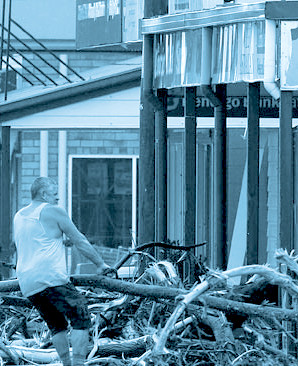Feds back council clean-ups
 The Federal Government has decided to reimburse councils that use their own equipment to clean up after natural disaster events.
The Federal Government has decided to reimburse councils that use their own equipment to clean up after natural disaster events.
The decision has been particularly welcomed in Queensland, where many communities are just beginning to assess the damage from recent flood and cyclone events.
The announcement ensures that councils who used their own gear to rebuild damaged public assets following floods and storms of 2013 and 2014 will not be out of pocket.
The announcement means a funding shortfall of $7.5 million across about 35 Queensland councils is now eligible to be repaid under Natural Disaster Relief and Recovery Arrangements (NDRRA).
Local Government Association of Queensland President Mayor Mark Jamieson said it was a breakthrough following two years of advocacy by councils and the LGAQ.
“I am very pleased that the Government has seen sense on this issue and has thrown its support behind councils using a cost-effective solution to undertake vital reconstruction work within Queensland communities,” he said.
“I particularly thank Minister for Justice Michael Keenan and other members of Federal Parliament who met with me to listen to the concerns of councils during a recent visit to Canberra.”
Cr Jamieson said it was some of the state’s smallest councils who stood to benefit most from the decision.
“I pay tribute to councils like Barcoo Shire and Mayor Bruce Scott, as well as organisations like Central Western Queensland Remote Area Planning and Development Board (RAPAD) who stood shoulder to shoulder with us during this process.”
Cr Jamieson also thanked the State Government for its continued support and advocacy over the last two years on the issue of clarity around NDRRA repayments.
“I thank Deputy Premier Jackie Trad in particular for lobbying side-by-side with councils on this issue,” he said.
“Today’s announcement by the Commonwealth Government will provide clarity and certainty for councils in the lead-up to reform of all-important disaster funding arrangements.”
“The approval of plant and equipment and an extension of day labour until the upfront model commences in July 2018, is a double win for local governments and resolves LGAQ’s long-standing call for interim arrangements.”








 Print
Print